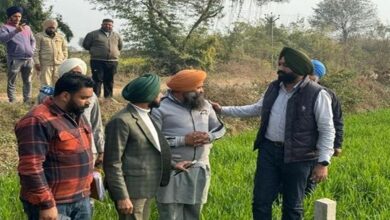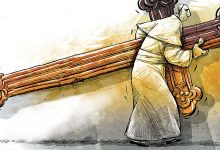
Is there a single past or many pasts? This was the most important question at Delhi’s Press Club of India on a Sunday evening. Braving the monsoon humidity, a large crowd comprising academicians, students, writers, journalists, and heritage and history enthusiasts thronged the conference room to hear renowned literary critic GN Devy talk. The professor was in conversation with the famous linguist Peggy Mohan. The topic? An Aleph Book Company publication edited by Devy, Tony Joseph and Ravi Korisettar — The Indians: Histories of a Civilization.
Launched in July 2023, the 620-page book has become the talk of the town in academic circles. The ambitious project is a culmination of 101 essays written by nearly 100 scholars, covering a magnanimous time period of about 12,000 years — from the Ice Age to the 21st century
In a political atmosphere where history is being moulded into a unitarian version, Devy’s book is a fresh attempt to document the pluralistic narratives of the people who have inhabited the subcontinent over the millennia. The Indians tries to answer the question that has become a hot-button issue for many politicians: What is the history of India and its people?
Also read: Eight step wells, 2 cities, 10 years—how collaboration revived crumbling Mughal ‘baolis’
12,000 years, 101 chapters
Right at the start, Devy made it clear that The Indians offers its readers an off-beat version of history.
“This book is not about kingdoms and nations, it is about people of India. It is a history of pluralism, of acceptance, of continuity,” he said. “We wanted diversity to appear, therefore we chose the title ‘histories’ of a civilisation…This is not a history, it is histories.”
Anxieties about the current political climate weren’t amiss.
“It is such an unusual book and put together in such a different way at a time like this — when we are quite disturbed over a lot of things in the intellectual sphere,” Mohan said.
And The Indians isn’t a boring or heavy academic book — it’s a light, enjoyable read that draws you in. Describing the book as ‘necessary’, Mohan called it “a wedding feast”. “I treated it as a tasting menu because I immediately went through [it] and marked my favourites and read them first, in a very matlabi way,” she added.
The Indians’ approach to history is unique in two aspects — in terms of diversity and linearity of the narrative. “We had decided on two backbones. One is diversity: Let people tell their stories the way they want to. Second was varying timelines…India does not have straight timelines,” Devy said.
In the grand corpus of the Indian subcontinent’s history, Devy says it is only natural that scholars would have missed documenting the history of certain populations. This is the gap that the professor wanted to plug. “Three things are missing, [which] I want to add — Kashmir, Nomads, and sea life,” he added.
















